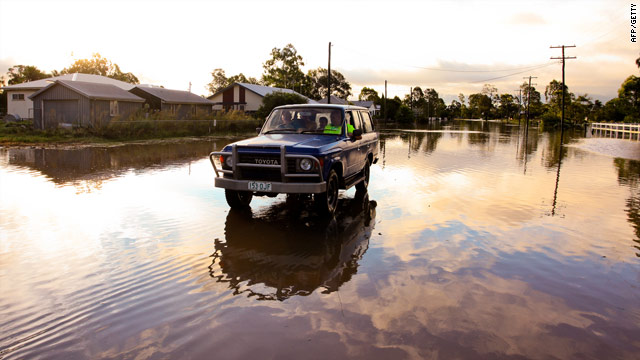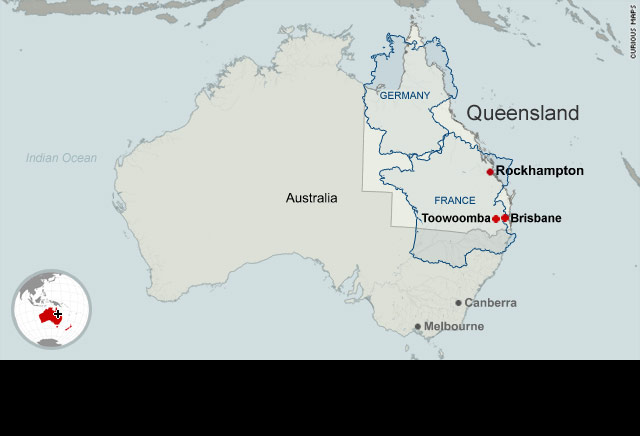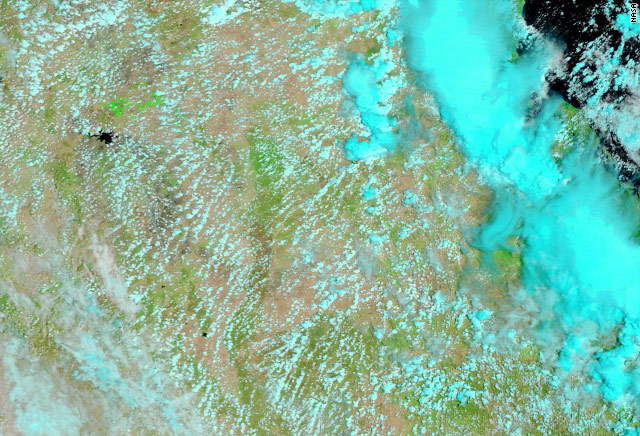WASHINGTON – President Barack Obama reversed course Monday and ordered a resumption of military trials for terror suspects at Guantanamo Bay, Cuba, making his once ironclad promise to close the isolated prison look even more distant.
Guantanamo has been a major political and national security headache for the president since he took office promising to close the prison within a year, a deadline that came and went without him ever setting a new one.
Obama made the change with clear reluctance, bowing to the reality that Congress' vehement opposition to trying detainees on U.S. soil leaves them nowhere else to go. The president emphasized his preference for trials in federal civilian courts, and his administration blamed congressional meddling for closing off that avenue.
"I strongly believe that the American system of justice is a key part of our arsenal in the war against al-Qaida and its affiliates, and we will continue to draw on all aspects of our justice system — including (federal) courts — to ensure that our security and our values are strengthened," Obama said in a statement.
"Going forward, all branches of government have a responsibility to come together to forge a strong and durable approach to defend our nation and the values that define who we are as a nation."
The first Guantanamo trial likely to proceed under Obama's new order would involve Abd al-Rahim al-Nashiri, the alleged mastermind of the 2000 bombing of the USS Cole. Al-Nashiri, a Saudi of Yemeni descent, has been imprisoned at Guantanamo since 2006.
Defense officials have said that of around 170 detainees at Guantanamo, about 80 are expected to face trial by military commission.
On Monday, the White House reiterated that the administration remains committed to eventually closing Guantanamo — which is on a U.S. Navy base — and that Monday's actions were in pursuit of that goal. But the outcome Obama wants seemed even more distant.
Critics of the military commission system, which was established specifically to deal with the detainees at Guantanamo, contend that suspects are not given some of the most basic protections afforded people prosecuted in American courts and that serves as a recruitment tool for terrorists.
Obama's administration has enacted some changes to the military commission system while aiming to close down Guantanamo.
More than two dozen detainees have been charged there, but the charges against a number of them were dismissed in the wake of Obama's order in January 2009 to halt the commission process.
So far six detainees have been convicted and sentenced, including Ali Hamza al-Bahlul, Osama bin Laden's media specialist who told jurors he had volunteered to be the 20th Sept. 11 hijacker. He is serving a life sentence at Guantanamo.
Meanwhile, the first Guantanamo detainee tried in civilian court — in New York — was convicted in November on just one of more than 280 charges that he took part in the al-Qaida bombings of two U.S. embassies in Africa. That case ignited strident opposition to any further such trials.
Another case is that of Khalid Sheikh Mohammed, the professed mastermind of the Sept. 11, 2001, terrorist attacks, who had been slotted for trial in New York before Obama bowed to political resistance and blocked the Justice Department's plans. With the military tribunals set to restart, it's likely Mohammed will be put back in that system to face trial alongside other admitted 9/11 conspirators.
Under Obama's direction Monday, Defense Secretary Robert Gates issued an order rescinding his January 2009 ban against bringing new cases against the terror suspects at the Cuba prison. Gates said the U.S. must maintain the option of prosecuting alleged terrorists in U.S. federal courts, but in his order Monday he also said the review of each detainee's status had been completed and the commission process had been reformed to address legal challenges.
House Armed Services Committee Chairman Howard "Buck" McKeon, R-Calif., said he was pleased with Obama's decision to restart the military commissions. But he said the administration must work with Congress to create a trial system that will stand up to judicial review.
Monday's announcement also included a process for periodically reviewing the status of detainees held at the prison. That's an effort to resolve one of the central dilemmas at Guantanamo Bay: what to do when the government thinks a prisoner is too dangerous to be released but either can't prove it in court or doesn't want to reveal national security secrets by trying to prosecute him? The answer, the White House said, is that the U.S. will hold those men indefinitely, without charges, but will review their cases periodically. However, if a review determines that someone should be released, there's no requirement that he actually be freed.
That decision on such a process had been expected for some time and was roundly criticized by rights groups. Tom Parker, a policy director at Amnesty International, condemned Obama's new order as reinstating a much discredited commission system that will rely on periodic reviews similar to what was done during the Bush administration.
The reviews, he said, "fall short of offering detainees an opportunity to mount a robust defense and to challenge the government's position regarding their detention."
Gates' order also does little to resolve the dilemma posed by many Yemeni prisoners who, for years, have been cleared for release. Their country is a hotbed of terrorism, and the U.S. does not trust the government to monitor former detainees. The order allows the U.S. to hold those men indefinitely, until the security situation in Yemen improves or the U.S. can find somewhere else to move them.
The administration also announced support for additional international agreements on humane treatment of detainees. The White House said that would underscore to the world its commitment to fair treatment and would help guard against the mistreatment of U.S. military personnel should they be captured.
Congress hardened its objections to trying detainees on U.S. soil by including language in legislation signed by Obama in January that would block the Defense Department from spending money to transfer Guantanamo prisoners to the U.S. for trial. The legislation also set up new rules for moving detainees elsewhere, and as a result Gates has told lawmakers that it has become very difficult for the government to release detainees to other countries because he now has to certify they will pose no danger. Officials have said that about one-quarter of those released so far have returned to battle.
The White House said Monday that it would continue to work to overturn those congressional prohibitions.
___(equals)
Associated Press writers Ben Feller and Matt Apuzzo contributed to this report.





















